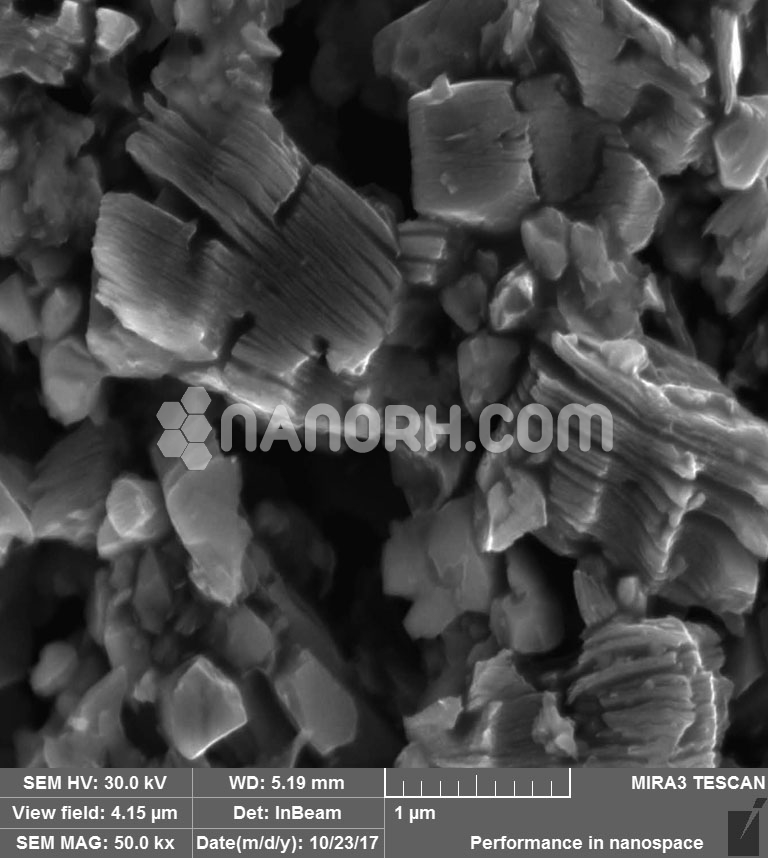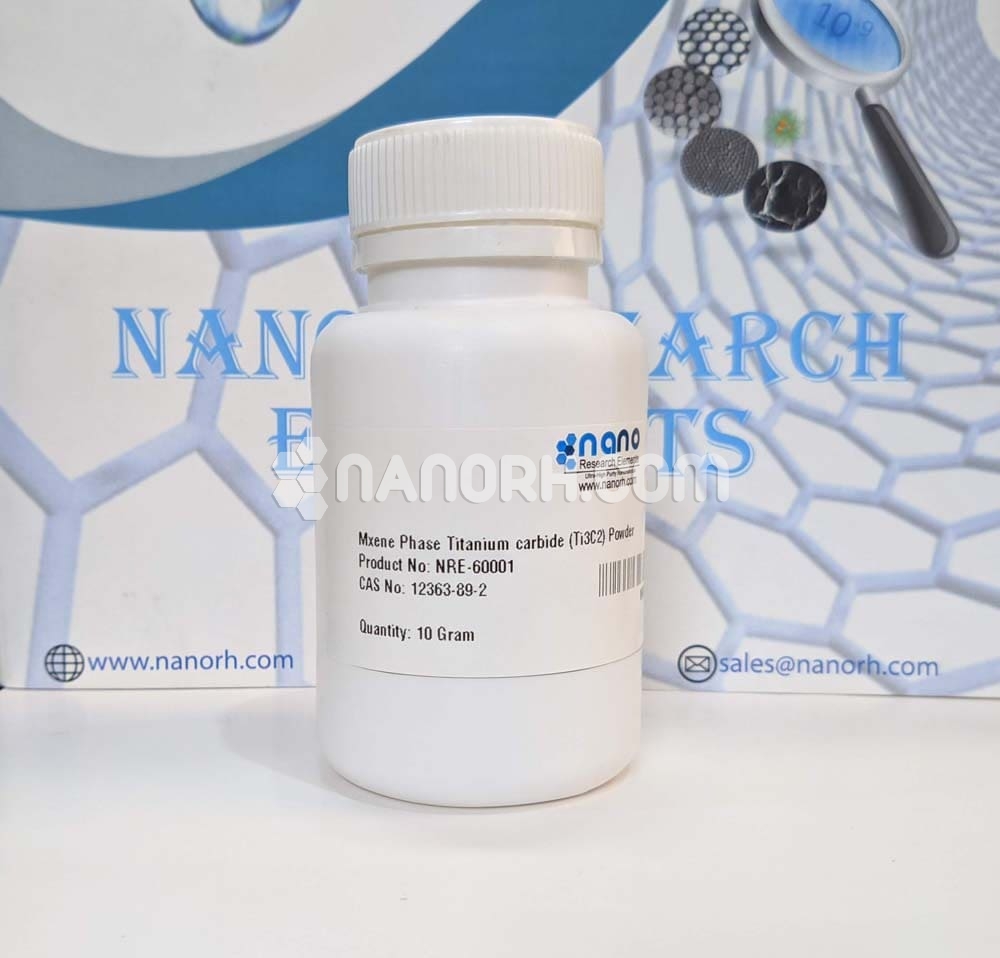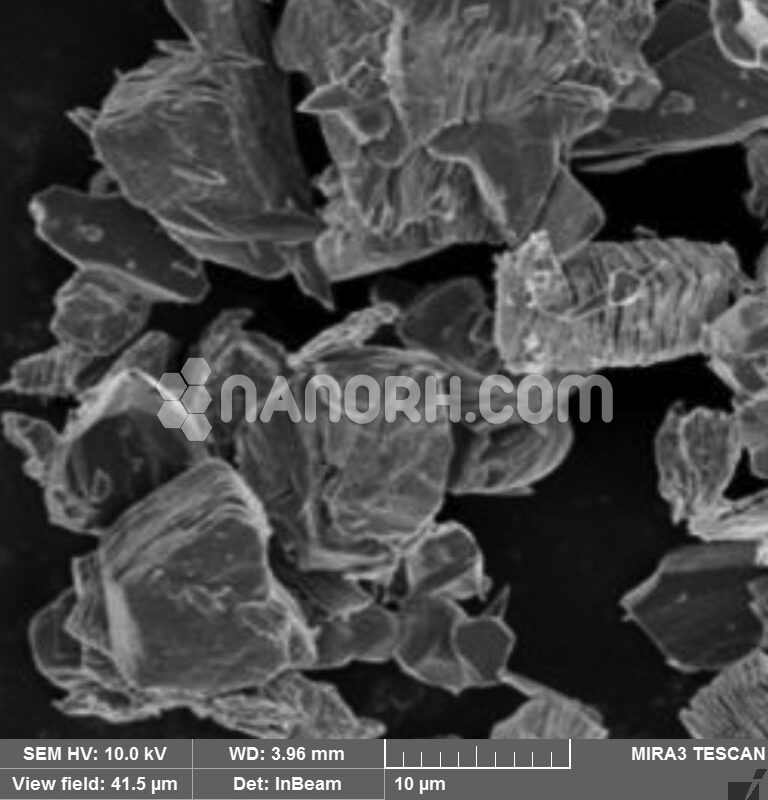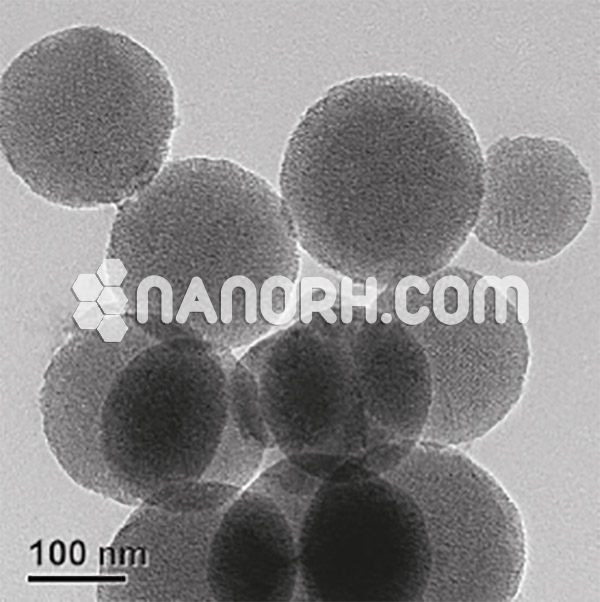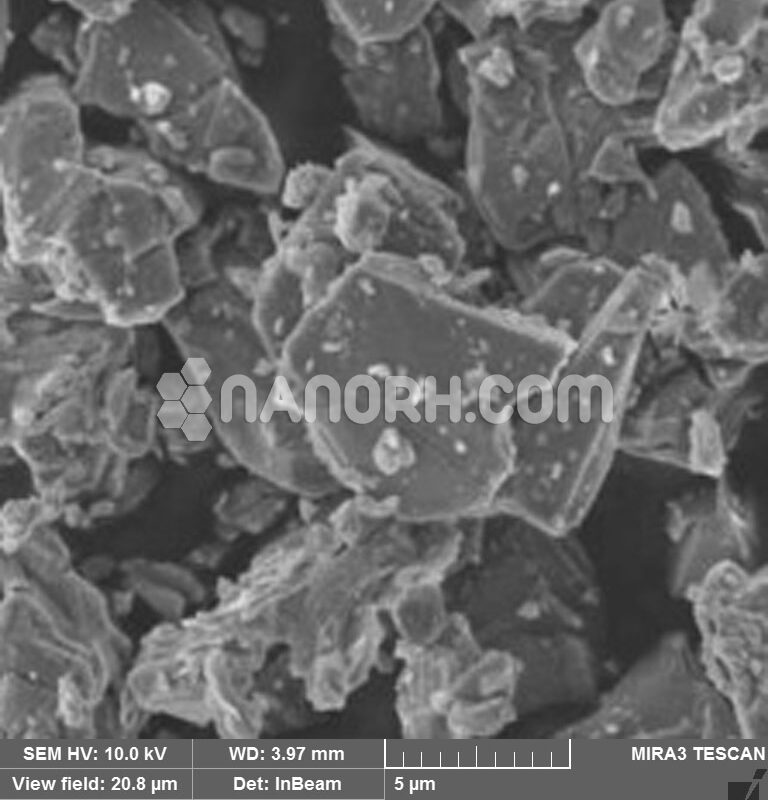|
Titanium Carbide MXene Powder (Undelaminated) |
|
| Product No. | NRE-59004 |
| CAS No. | 12363-89-2 |
| Formula | Ti3C2 |
| Molecular Weight | 167.62 g/mol |
| APS | < 40 μm |
| Purity | 99.9% |
| Form | Powder |
|
Certificate of Analysis |
|
| Ti | 85.6% |
| C | 14.3% |
| B | 0.02% |
| Cr | 0.03% |
| Al | 0.02% |
| O | 0.01% |
| Sn | 0.01% |
Titanium Carbide MXene Powder (Undelaminated)
Titanium carbide (Ti₃C₂) MXene powder, known for its high electrical conductivity, mechanical strength, and thermal stability, is a versatile material with a broad range of applications. MXenes are two-dimensional materials derived from the MAX phases, and Ti₃C₂ is one of the most studied due to its remarkable properties. Here’s a detailed look at its applications:
Applications
Energy Storage and Conversion:
Applications: Used in supercapacitors, batteries (especially lithium-ion and sodium-ion), and fuel cells.
Advantages: Ti₃C₂ MXene powder offers high electrical conductivity and a large surface area, which enhance the charge storage capacity, rate performance, and overall efficiency of energy storage devices. It contributes to high capacitance, fast charge/discharge rates, and long cycle stability.
Electromagnetic Shielding:
Applications: Applied in electromagnetic interference (EMI) shielding materials and radar-absorbing coatings.
Advantages: The excellent electrical conductivity and layered structure of Ti₃C₂ MXenes allow for effective absorption and attenuation of electromagnetic radiation, which is crucial for protecting electronic devices and systems from interference.
Catalysis:
Applications: Used as a catalyst or catalyst support in various chemical reactions, including hydrogen evolution reactions (HER), oxygen reduction reactions (ORR), and other energy conversion processes.
Advantages: Ti₃C₂ MXenes exhibit high catalytic activity and stability, improving the efficiency and performance of catalytic processes and reactions.
Sensors:
Applications: Utilized in advanced sensors such as gas sensors, biosensors, and environmental sensors.
Advantages: The high surface area and electrical conductivity of Ti₃C₂ MXene powder enhance the sensitivity, response time, and detection limits of sensors, making them suitable for detecting gases, biological molecules, and environmental contaminants.
Thermal Management:
Applications: Applied in thermal management systems, including heat sinks, thermal interface materials, and heat spreaders.
Advantages: Ti₃C₂ MXenes possess high thermal conductivity, which facilitates effective heat dissipation and management in electronic devices, power electronics, and other systems requiring efficient thermal regulation.
Composite Materials:
Applications: Incorporated into composite materials to enhance their mechanical, thermal, and electrical properties.
Advantages: Ti₃C₂ MXenes improve the strength, toughness, and thermal conductivity of composites, making them useful in high-performance applications in aerospace, automotive, and structural materials.

